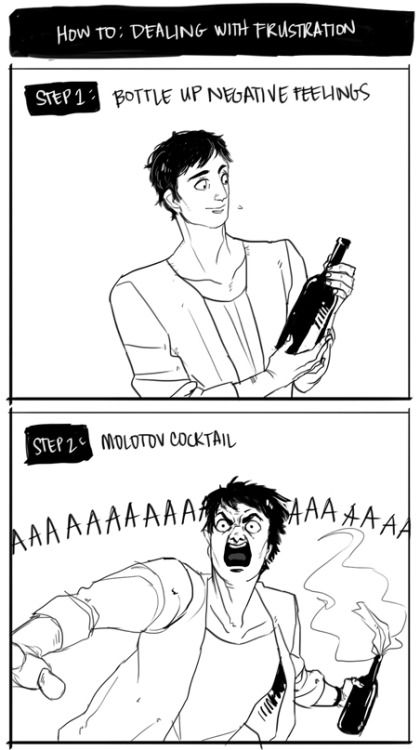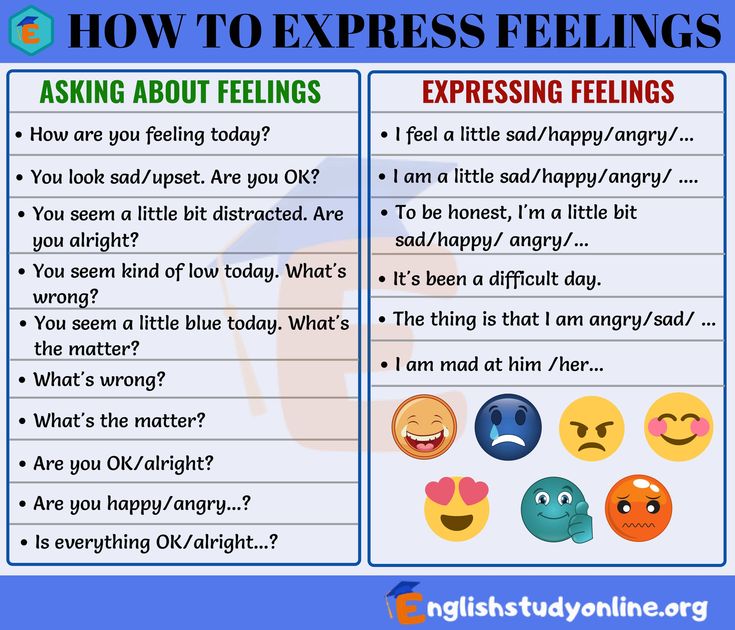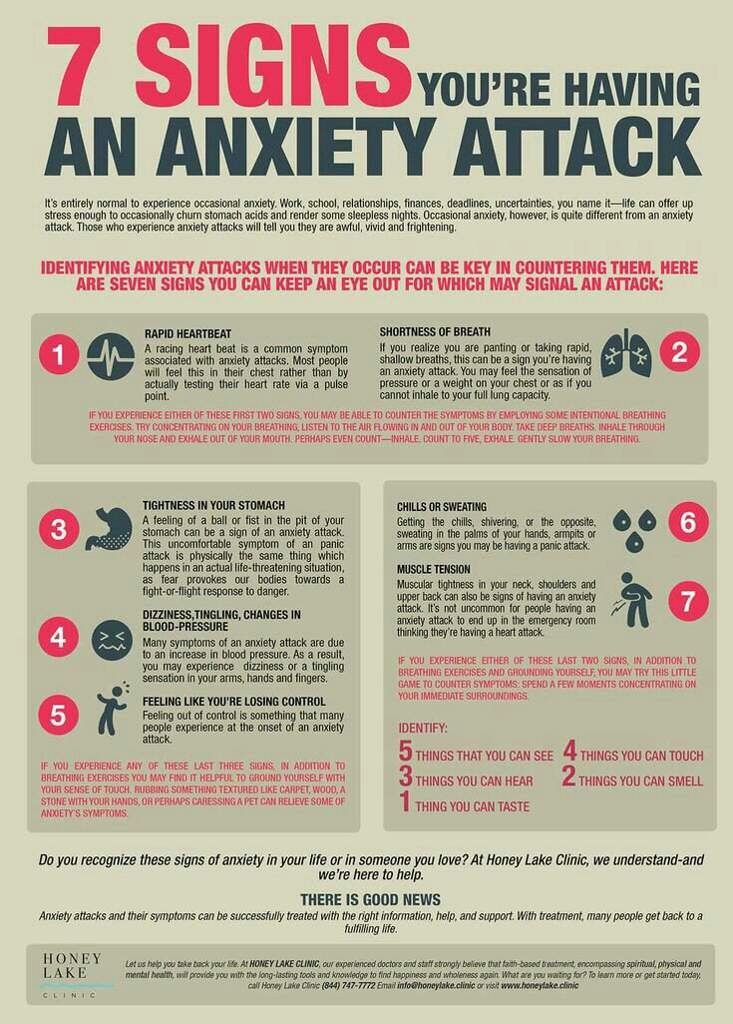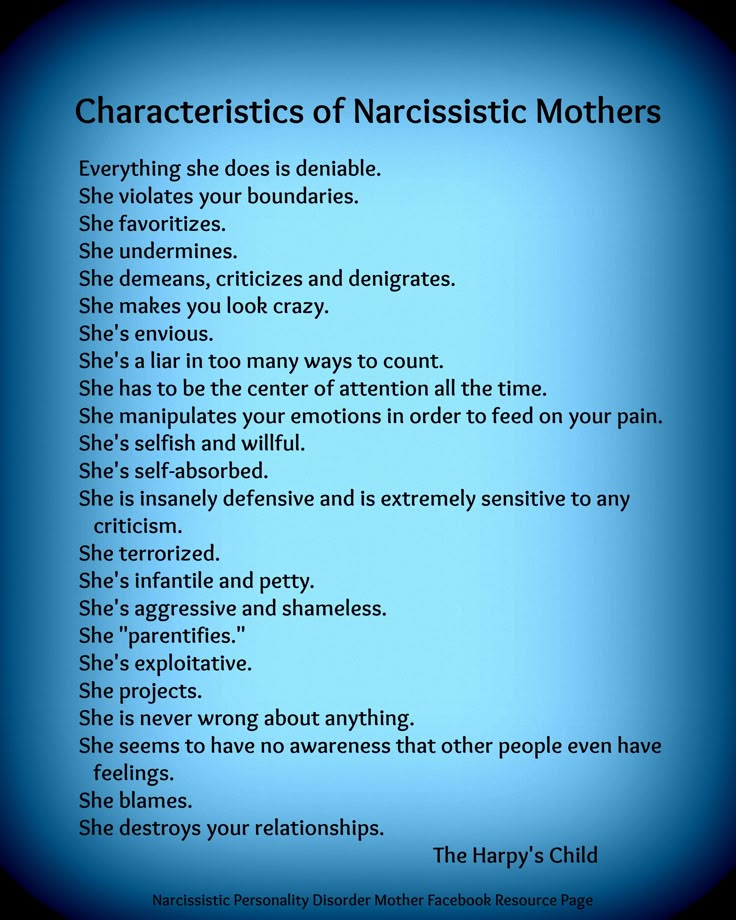Deal with frustration
18 Ways to Cope with Frustration
Frustration can be hard to put into words – it’s a complicated mix of anger, disappointment, and annoyance. For most health care workers, frustration levels are particularly high right now as many face PPE shortages, minimal workplace support, and a seemingly careless general public. Anger and frustration aren’t always productive emotions, and while we can’t necessarily control that we feel them, we can control how we react to them. If you need to release some of your pent-up negative energy, here are some healthy ways to do so:
- Do some breathing exercises: when having a strong emotional response, you may notice your breath getting faster and shallower. By regulating your breathing, you can get more oxygen to your brain and help yourself calm down. A good technique is 4-7-8 breathing: breathe in for four seconds, hold for seven, breathe out for eight
- Progressive muscle relaxation: one of the ways our bodies respond to heightened emotion is with muscle tension.
Relieving that physical tension will help your mind relax too. Lay down and work your way through each muscle group: tense as you slowly inhale, and release as you slowly exhale. If you prefer some instruction, try a guided audio.
- Meditate: Meditation can be a great way to connect with your feelings, but it can also help you create space between your thoughts and emotions as you settle into self-awareness. Download an app like Headspace or Calm and look for a guided meditation that fits how you’re feeling.
- Exercise: Physical activity is a mood booster, helps you regulate stress and adrenaline, and is a healthy way to release pent-up energy. If you can, try going for a run and really focus on your feet hitting the ground. If you prefer instruction, see if your local gym has online classes or search for your favorite type of workout on YouTube.
- Yoga: If you prefer low-impact workouts, yoga is a great way to get your body moving in a meaningful way.
 Yoga Pose has an online directory of poses searchable by symptom (like anxiety or back pain) and has categories including poses for calmness.
Yoga Pose has an online directory of poses searchable by symptom (like anxiety or back pain) and has categories including poses for calmness.
- Vent: Ruminating on your anger only perpetuates it, so give yourself some time to let it all out with a trusted friend. As long as you don’t focus on it for too long, venting can be a healthy emotional outlet – just try to keep it to 15 minutes, and then move on to more positive conversation. If you want to vent anonymously, try an app like Lyf or reach out to Magellan Health’s free crisis hotline for frontline workers at 1(800) 327-7451.
- Journal: If you’re dealing with the the kind of frustration where you can’t even think straight, try writing (or typing) it all out. This can help you process a situation and calm your brain down so you can approach the issue with a more level head.
- Get outside: Spend some time in your backyard, go for a walk around the block, or head to your favorite park.
 If you’re crunched for time, even just stepping out for 60 seconds of fresh air can help you recalibrate. To really help ground yourself, slip off your shoes and let your bare feet touch the dirt or grass.
If you’re crunched for time, even just stepping out for 60 seconds of fresh air can help you recalibrate. To really help ground yourself, slip off your shoes and let your bare feet touch the dirt or grass.
- Manage your expectations of others: Often, negative feelings come from misaligned expectations. Recognize that you can’t fully anticipate anyone else’s behavior; change your own mental framework so that you aren’t holding them to standards they won’t meet – it’s only hurting you.
- Treat yourself: Sometimes you just want to lay on the couch with a bag of chips and your favorite movie, and that’s OK! As long as it doesn’t become an unhealthy habit, there’s nothing wrong with treating yourself to some guilty pleasures.
- Spend some time with animals: Many people find animals to be a source of comfort and support. Interacting with animals has been shown to decrease levels of cortisol (a stress hormone) and lower blood pressure, as well as elevate levels of serotonin and dopamine, which calm and relax[i].

- Distract yourself: Leaning into feelings doesn’t always help. If you need to detach from your anger, try doing something that requires focus (like a puzzle or reading).
- Take a nap: We all need a brief reset at times. If you hit a wall where you are completely overwhelmed with everything going on, set a timer for 20 minutes and climb into bed. The rest will do your brain well and checking out for a little bit often helps you go about the rest of your day with a fresh start.
- Start a garden or get a new houseplant: Numerous studies have found that the act of gardening can be beneficial for numerous health outcomes, including anxiety and stress reduction[ii]. Don’t have the outdoor space? Taking care of an indoor plant has similar effects on your mental health[iii].
- Get creative: Art is a great tool for emotional expression. Crafting, drawing, painting, writing poetry, and other art forms are all healthy ways to channel your anger into something fun.

- Turn on some music: Music has a powerful effect on our brains. Search for a playlist of relaxing or happy music to turn your frustration into a more enjoyable emotion. Bonus points if you dance it out!
- Get organized: Take ten minutes to clean, plan, or otherwise streamline something in your life. Turning your extra energy into something productive will not only help you get rid of some of that frustration, but you’ll also have accomplished something.
- Wash your face: It seems so simple but putting cold water on your face doesn’t just feel refreshing – it triggers your mammalian diving reflex which slows your heart rate and breathing. By reducing the physical symptoms of frustration, you can interrupt your brain’s feedback loop and reduce your emotional frustration as well.
[i] National Institutes of Health. (February 2018). The power of pets: Health benefits of human-animal interactions. NIH News in Health. https://newsinhealth.nih.gov/2018/02/power-pets
NIH News in Health. https://newsinhealth.nih.gov/2018/02/power-pets
[ii] Soga, M., Gaston, K.J., & Yamaura, Y. (2017). Gardening is beneficial for health: A meta-analysis. Preventive Medicine Reports, 5, 92-99. https://doi.org/10.1016/j.pmedr.2016.11.007
[iii] Lee, M.S., Lee, J., Park, B.J., & Miyazaki, Y. (2015). Interaction with indoor plants may reduce psychological and physiological stress by suppressing autonomic nervous system activity in young adults: a randomized crossover study. Journal of Physiological Anthropology, 34(1). DOI: 10.1186/s40101-015-0060-8
10 Ways to Deal With Frustration
Today, most of the world is being asked to stay home and avoid going out. The self-isolation is enough to make people go stir crazy. And for some, being stuck at home with the family can be a frustrating experience. In life, things don’t always go according to plan. Sometimes, things go wrong. Other times, people frustrate or annoy us. And when you’re forced to deal with all of these feelings while isolated from the world around you, the challenge of frustration grows. In this article, we’ll break down 10 ways to deal with frustration during this difficult time.
In this article, we’ll break down 10 ways to deal with frustration during this difficult time.
What is frustration?
Frustration is a feeling people experience when they are upset or annoyed. It’s a normal reaction when dealing with situations outside of your control.
Causes of frustration
1. Poor communication
One of the causes of frustration stems from poor communication. Often, we fail to communicate in a way that other people understand. Have you ever found yourself saying, “You’re not listening to me?” That’s an example of poor communication. In this instance, the other person will typically say that they are listening to you. That’s because they’re listening but they don’t understand what you want because you haven’t articulated the need in a way that the listener understands.
Free meditation appDeclutter The Mind is an app that will teach you how to meditate, help you form the habit of a regular practice, and expand your mind to the teachings of mindfulness.
Download App
You need to be more explicit when describing your needs to another person. For example, “When you say x, I feel y. What I need right now is q to resolve this issue.” But that’s not even the most important part of communication, listening is the most important part actually. And most people underperform at communicating their thoughts, so you’ll need to try to pick up the subtext and explicitly call it out to determine if you understand the subtext of what someone else is saying. No wonder it’s so hard to deal with frustration, communication is a lot more than just speaking words.
2. Different experiences
If you’re trying to understand the causes of frustration, just take a look at the different sets of experiences we all go through. We all see the world through our own unique lens. From the way we were raised to the economic hardship our families face to traumatic experiences, we’ve all experienced life in a different way than those around us. It’s what helps make our experiences so unique. And it’s what makes us unique. Two people can go through a similar event and perceive the event in completely different ways. For example, say you grew up in a family where everyone smokes, you might find that you too became a smoker or maybe you were so repulsed by it that you decided to never smoke. You can’t blame someone else for making you become a certain way because there are countless cases of people reacting in completely different ways. There’s so much that shapes who we become. And that can lead to frustration because you never see the full picture of what makes someone who they are.
It’s what helps make our experiences so unique. And it’s what makes us unique. Two people can go through a similar event and perceive the event in completely different ways. For example, say you grew up in a family where everyone smokes, you might find that you too became a smoker or maybe you were so repulsed by it that you decided to never smoke. You can’t blame someone else for making you become a certain way because there are countless cases of people reacting in completely different ways. There’s so much that shapes who we become. And that can lead to frustration because you never see the full picture of what makes someone who they are.
3. Lack of progress
The last cause of frustration comes from a lack of progress. Humans are ambitious. We want to grow, change, and evolve. We pursue relationships so we can go down the path of getting married and having children because we see that as progress, and of course, it’s how we were evolved to keep our species alive. When a relationship falls apart, often we fall apart.
Progress is how we feel better about ourselves, instead of feeling like our life is falling apart.
10 Ways to deal with frustration
1. Meditate
The first step to dealing with frustration is to notice that you’re feeling. Believe it or not, but it’s not always easy to notice frustration arising. Sometimes, we blow up at loved ones not realizing that we were pent up with frustration. Fortunately, there is a way to get better at noticing frustration: meditation. With meditation, you simply become more attuned to feelings and sensations in your body. That way, when you notice that frustration is coming up for you, you can take action to lower it instead of taking it out on those you care about. One of the benefits of meditation is that it helps you become more self-aware in the present moment. If you find that you regularly have fits of rage or if you’ve gotten in trouble at work over anger issues, you may find that meditation is helpful to prevent the buildup of frustration within you.
Right now, most people are in self-isolation at home. And on the one hand, you’re spending time with the people you love the most. How wonderful! But on the other hand, you’re stuck with the people who can annoy or frustrate you better than anyone else. Uh oh. Usually, we can get by with a little frustration or annoyance from loved ones. But when you’re stuck at home for weeks on end things can unravel pretty quickly. That’s why it’s so important to practice meditation for at least ten minutes a day. You can check out the Declutter The Mind meditation app on the App Store or in Google Play. You can also find some of our guided meditations on our website.
2. Get some fresh air
While some parks, stores, and public places may be closed in specific cities around the world, in most countries, no one is stopping you from getting some fresh air. Whether you spend some time in your backyard or on your balcony, getting some of that fresh air can do your body good. If you own a pet, you might enjoy taking some time to walk it a few more times a day than usual to get some of that warm sunshine glowing upon you. While outdoors, be sure to mindfully breathe. Being out in nature is one of the best places you can ever be. While you shouldn’t be hitting up your local beach, going for a casual stroll by the water or in a forest can be a relaxing activity. But remember to practice social distancing at this time. You never know who may be contagious.
While outdoors, be sure to mindfully breathe. Being out in nature is one of the best places you can ever be. While you shouldn’t be hitting up your local beach, going for a casual stroll by the water or in a forest can be a relaxing activity. But remember to practice social distancing at this time. You never know who may be contagious.
3. Exercise
Exercise is one of the healthiest ways to deal with frustration. Instead of carrying all that pent up energy inside of you, you can release it through your physical movements. During your most frustrated moments, go for a run. If you’re feel really angry, you can gently punch the air as you move forward. You’ll notice that it actually feels good. Even those who don’t like running will find relief in a run when it comes to their frustration. You can also do other cardio such as dance if you want to transition from a mood of frustration to one of happiness. And if you’ve really built up a ton of pent up frustration, maybe you’ll find some solace in weight lifting. You can grunt every time you lift your weight up. And in all of these cases, you’re improving your physical health and dealing with frustration in a way that makes you stronger.
You can grunt every time you lift your weight up. And in all of these cases, you’re improving your physical health and dealing with frustration in a way that makes you stronger.
4. Practice nonviolent communication
Raise your hand if you’ve ever said something you shouldn’t have when frustrated. Okay, don’t worry, me too. When we’re frustrated, we sometimes use our words to hurt people we care about to get back at them for causing the frustration. However, verbally attacking someone doesn’t solve the problem, it only magnifies it. There’s an actionable book by Marshall Rosenberg called Nonviolent Communication: A Language of Life that breaks down how to communicate your needs to other people. A cause of frustration may stem from not having our needs met. However, if we fail to know how to communicate those needs to others, we end up having to deal with frustration for years. If you can invest some time to reading, this book may help push you in the right direction.
5.
 Focus on positive visualization
Focus on positive visualization Now we don’t want to be woo-woo about positive visualization. Imagining yourself as a billionaire on a beach with zero cares in the world can be a wild dream but deep down you know it’s not possible. Most billionaires have more stress, not less. Kidding aside, positive visualization can help calm your frustrations. You can use Declutter The Mind’s Visualization for Anxiety meditation on the app to help you visualize a ball of light flowing through you to help you ease the tension in your body. The aim of the visualization is to shift your focus on something else to help you deal with frustration.
6. Change the tone of your thoughts
Positive thinking alone won’t cure your frustration. However, it can help you transition your thought process to a new path. Have you ever found yourself thinking a negative thought and going down a rabbit hole. And somehow this one thought magnifies into something so big you can’t control it? How frustrating! Now you can recite every positive mantra in the world but that’s not going to help you.
When a negative thought enters your mind, think of a piece of evidence that counters it. For example, you might think to yourself, “I forgot to buy eggs at the grocery store, I’m so forgetful.” However, telling yourself that you’re a forgetful person is a permanent way to describe yourself for making a tiny mistake. Instead, think to yourself, “I forgot to buy eggs because I didn’t include it on the grocery list due to being busier than usual today. I can pick some up tomorrow.” That way, you include a reason for not buying eggs and you also include a solution proving that the problem is fixable.
7. Look for solutions, not problems
When we deal with frustration, we often put all of our focus on the problem instead of the solution. When you find that a problem is growing bigger, create a list of all the solutions. That way, you remind yourself that the problem is fixable. Frustration is fixable too.
However, frustration goes away when we block the negativity in our thoughts so that they don’t take something that makes us feel bad and turn it into something that makes us raging mad, upset, or hurt. For instance, say you feel frustrated being stuck at home. Right now, you might not be allowed to leave your house so that won’t work as a solution. However, what can you do to turn your home into a place you want to be? Maybe you can sign-up for an online fitness class to release the tension. Or you can play an online game to help entertain you. Or you can write ‘thinking of you’ cards to friends and family to help make other people happy when they get a surprise in their mailbox.
For instance, say you feel frustrated being stuck at home. Right now, you might not be allowed to leave your house so that won’t work as a solution. However, what can you do to turn your home into a place you want to be? Maybe you can sign-up for an online fitness class to release the tension. Or you can play an online game to help entertain you. Or you can write ‘thinking of you’ cards to friends and family to help make other people happy when they get a surprise in their mailbox.
8. This too shall pass
Experiencing frustration is part of being human. However, here’s some good news for you: frustration passes. When you find that burning ball is in your chest, taking a deep breath, and remembering that this isn’t a permanent state can help you deal with frustration. Obstacles and challenges don’t last forever. They can be a huge pain in the butt as you deal with the problem. However, nothing is permanent. Eventually, as time passes, you’ll notice your frustrations do. Avoid making permanent decisions to solve temporary problems. In this present moment, you’re in full control of how you feel and react to your frustration. Choose your next step wisely.
In this present moment, you’re in full control of how you feel and react to your frustration. Choose your next step wisely.
9. Distract yourself
There are two types of frustrated people in the world: those who ruminate on their thoughts and those who take action. Those who ruminate on their thoughts tend to make a small problem an impossible one. And those who take action usually by distracting themselves eventually move on. If you find that something is frustrating you, it’s important to distract yourself with a different task. Maybe you play anxiety relief games, exercise, or watch a show. Avoid calling a friend to talk about your problem because that may cause the rumination to escalate. You don’t need someone to agree with your frustrations, you need someone who will help you let go of your frustrations. Not every problem deserves a battle. And that doesn’t just include a battle with other people, but also a battle in your mind.
10. Add a journal entry about it
Sometimes when you’re dealing with frustration, you want to get a million things off of your chest. But the problem is, once the words come out, they stay out. It can add tension to relationships and make bad situations worse. Now, you probably don’t want to write your negative thoughts about people or situations on paper. Paper can be found and accidentally read by others. The best strategy is to type it all out and immediately deleting it without sending it. If you think sharing your thoughts needs to be heard to help you come to a solution, give yourself a few hours to cool down. And when you do write something out be sure to include actions that you and others can take to help resolve your frustrations.
But the problem is, once the words come out, they stay out. It can add tension to relationships and make bad situations worse. Now, you probably don’t want to write your negative thoughts about people or situations on paper. Paper can be found and accidentally read by others. The best strategy is to type it all out and immediately deleting it without sending it. If you think sharing your thoughts needs to be heard to help you come to a solution, give yourself a few hours to cool down. And when you do write something out be sure to include actions that you and others can take to help resolve your frustrations.
You can also keep a mindfulness journal where you can keep tabs on your daily emotions and ensure you’re seeing progress.
Dealing with frustration summary
Frustration is a temporary emotion. Using some of the strategies above you can take actions to deal with frustration. Keep in mind that you will experience this feeling again in a new context down the road. Using meditation, you can become more aware of the feelings before they fully surface. It can help you manage your frustration on a long-term basis so that frustrations impact on your mood or even your day becomes minimal. Releasing your frustration through exercise can also be beneficial to help you cope with it. Whether you decide to write your frustrations out, focus on solutions, distract yourself, or try any of the other ideas on this list, you’ll be well on your way to managing your frustrations in a safe and healthy manner. May you be at peace.
Using meditation, you can become more aware of the feelings before they fully surface. It can help you manage your frustration on a long-term basis so that frustrations impact on your mood or even your day becomes minimal. Releasing your frustration through exercise can also be beneficial to help you cope with it. Whether you decide to write your frustrations out, focus on solutions, distract yourself, or try any of the other ideas on this list, you’ll be well on your way to managing your frustrations in a safe and healthy manner. May you be at peace.
How to Deal with Disappointment: 12 Helpful Steps
When you get frustrated, that's when it can hurt. Sometimes a little. Sometimes very strongly. This can drag you into negativity for days or even weeks.
But if you learn to deal with this disappointment in a healthier and more rewarding way, then it can be less scary and less painful and actually a springboard or experience for further personal growth.
This, at least, has been my experience in the last decade.
And in this post, I'd like to share 12 steps, tips, and habits that I've learned over the years that help me deal with frustration and reduce the situations I'm disappointed in in the first place.
1. First, accept how you feel
Disappointment hurts. And that's okay. Don't try to push him away. And don't try to hide it behind a big smile.
I found it best not to give in to such seductive impulses. But instead, accept what I feel. To let it all in and get a little sick.
Because if I do that, things will go faster and end up being less painful to process what happened.
If I, on the other hand, reject what I honestly feel, these emotions may surface later and at unexpected times. And make me sullen, pessimistic or passive aggressive.
2. Remember that you are not a disappointment
Just because you may have been disappointed, failed, or made a mistake and disappointed someone else, does not mean that you are disappointed or failed.
And this situation you're in right now won't last forever. Even if today it may seem so.
The truth is:
- Just because you were disappointed today or you disappointed someone doesn't mean you will or will do it tomorrow or next time.
- This doesn't mean you're disappointed (unless you decide to label yourself).
- If you keep moving forward and you keep taking action, then you will move on and you will improve.
3. Learn from him
Instead of getting lost in the pain and negative emotions that can come from disappointment, choose to see it more as something you can learn valuable things from (and something, which will help you grow).
You can do this by asking yourself better questions.
Questions such as:
- What is the one thing I can learn from this?
- How can I correct my course to avoid this disappointment in the future?
- What can I do differently next time?
You may find out that you can probably communicate better the next time you are in a similar situation or working together with someone else on a task or project.
Or that you need to give yourself a better balance between rest and work in order to avoid mistakes or think more clearly.
You may even realize that you need to make big changes in your life and start spending less time - or no time at all - with someone who has disappointed you too many times (or always makes you feel disappointed, regardless). how hard you try).
4. Remind yourself that disappointment will happen if you step outside your comfort zone
Who is never disappointed? Or never feel overwhelmed by a failure or a mistake?
People who never really step outside their comfort zone.
Everyone who is now successful and you can look up to have your share of disappointments and failures.
Failure and sometimes feelings of disappointment are a natural part of a fulfilling life. This is a sign that you are trying to grow and improve your situation.
I have found that just keeping this fact in mind helps me stay strong and deal with my own stumblings and setbacks more easily.
5. Focus on what you still have in your life
To move on, shift your attention to what you still have in your life.
People, passions and things that you can sometimes take for granted, like a roof over your head and clean water.
Use of gratitude thus helps me put things in perspective and not let disappointment overwhelm me and derail my entire week.
6. Talk to someone close to you about it
Taking a healthier and broader view of what happened, as mentioned, is a vital part of dealing with disappointment in the best possible way.
And one of the most powerful ways to do this, in my experience, is to bring it out into the world and talk to someone close to you.
By blowing out when your friend is just listening, you can ease that inner pressure, sort yourself out and accept what happened instead of trying to push him away or ignore him.
And if you two have a conversation about it, then you can see the situation through someone else's eyes and from a different point of view.
This person can help you ground yourself and not make a big deal out of molehills. And the two of you can come up with the beginning of action together - a plan for how you will move forward.
7. If your expectations are perfect, then adjust them
If you demand or expect perfection from yourself or from other people, then you will often be disappointed.
So adjust your expectations a little.
If you are disappointed in what you have done, what someone else has done, or how things have turned out in your life ask yourself:
Will it matter in 5 years? Or even 5 weeks?
This is one thing that has helped me a lot to stop making mountains out of wormholes and adjust my own expectations.
Another useful thing is to simply remind yourself that if you buy into the myths of perfection, you will hurt yourself and the people in your life.
Because such myths that you may have picked up from movies, songs and just what the world or Instagram highlight drums tell you will face reality and strive:
- Cause a lot of stress and suffering within you and those around you you people.

- You get stuck in procrastination because you are afraid of being disappointed again or disappointing someone else.
- Harm or possibly cause you to end relationships, jobs, projects, etc. because your expectations are out of this world.
Keeping this reminder at the forefront of my consciousness—and sometimes written down on a piece of paper—certainly helped me adjust my expectations and lessen my own suffering and frustration.
8. Take a break (and find other ways to reduce stress as you move forward)
Just focusing on your goals and working towards them all the time can cause unnecessary stress and make you lose your perspective.
And sometimes you just need a break to get over the disappointment. So take some time to relax, recharge and have fun.
Once you have taken this time away from your goals and dreams, you will probably be in a better place to accept and learn from what happened and then move forward again.
When you are in this more balanced place, then also take some time to see how you can plan for a better balance between work and quiet downtime.
I've found that when my balance between these two things is in order, it's usually pretty easy to deal with setbacks and things that don't go the way I would like them to in a more constructive and mentally centered way.
9. Go beyond your own head
If you know that you have a tendency to get stuck thinking about a negative situation for too long and go down a downward spiral, then get out of your own head and the thoughts bounce there.
Two ways to do this and focus your attention outward are:
- Help someone out. Help a friend plan a party or meeting at work. Or help him move boxes and other things to his new home. Or just be completely there and listen to her as she pours out the frustrations in her life.
- Exercise.
 I find that lifting weights or going for a long walk is a great way for me to refocus on the outside, renew my energy and sharpen my focus.
I find that lifting weights or going for a long walk is a great way for me to refocus on the outside, renew my energy and sharpen my focus.
10. Find energy and motivation again with the help of others
Raise your mood, increase your motivation and your positive thinking with the help of others.
This can be through talking to friends, family or colleagues.
But also help from other people further away in the world (and sometimes in time). Update this focus and motivation to keep moving towards your dreams with, for example:
- Books (motivational or maybe biographies of the people you look at) and podcasts.
- Movies, TV shows and Youtube channels.
- Internet forums and social media channels.
Spend anywhere from 10-60 minutes with one or more of these sources to find new energy and shift in your thinking.
11. Find a small step to start moving forward again
After you have accepted the situation, you may have learned something or two from it and raised your motivation to start moving forward again.
You don't have to make a big and bold jump though.
When I myself am in this place, I usually try to come up with at least a beginning for a small plan of action in order to move forward. I do it together with someone - for example, with my wife - or on my own.
I then break this plan down into small action steps. And get to work with the first of these steps.
If I start to procrastinate at this stage, then I break it down into even smaller steps and take action on one of them.
The improvement in my self-esteem helped me avoid getting too deep into self-criticism and negative emotions after disappointment.
It also helped me not to be disappointed in myself as often as before, but to deal with failure with a more balanced mind and more emotional stability.
It also makes it easier not to blame others, to feel better about yourself and learn more from the situation and get better results next time.
So how do you improve your self-esteem?
Some of the most helpful tips and habits I've found:
Write down 3 things you appreciate about yourself in the evening:
Take a couple of minutes at the end of your day to ask yourself: What are 3 things I appreciate about yourself?
Record your answers on a notepad, laptop or smart phone.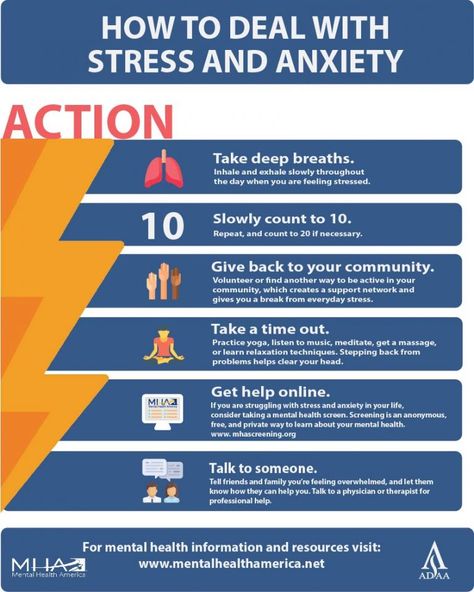 This will help you start focusing on the positive things about yourself and stop being so self-critical.
This will help you start focusing on the positive things about yourself and stop being so self-critical.
Stop falling into the destructive trap of comparison:
If you compare what you have, what you have done, and who you are to other people and their lives, you will most often start to feel depressed and bad about yourself.
Because there are always people ahead of you.
So choose another comparison method instead. Start comparing yourself to yourself. Look how far you've come. What you have overcome. And focus on how you improved your results.
These are just two good habits to improve your self-esteem.
You can also use many of the things you find in this article, such as being constructive in the face of adversity, being kinder and more helpful to others, without thinking that you are disappointed by just one failure and replacing perfectionism with - then healthier.
Young Money Content that makes you think and start changing your life for the better.
 Join and grow! InvestingComments: 0
Join and grow! InvestingComments: 0 Investment funds are the most popular financial institutions after banks. Investment funds are created with the money of investors for investing in a wide variety of assets. During the financial crisis, investment funds, as a rule, are a rather risky place to store capital - after all, assets around the world are rapidly becoming cheaper. But in a growing economy, investment funds are able to bring their depositors annual interest in double digits, providing a yield that far exceeds deposit rates.
Read more
InvestingComments: 0 Often you are faced with a difficult choice: buy, sell or hold shares of a particular company? You won't always have enough time to consult with your analysts or read lengthy analytical reports to make a decision. So what do you do in such a situation? The simplest advice is to look at the last two earnings reports of the company whose shares are in question. What is the first thing you should pay attention to when analyzing financial statements, and will be discussed in this article.
Read more
InvestingComments: 0The term "hedging" from the language of financiers gradually migrated from the lexicon of financiers to the business media, and now almost every person interested in personal finance has heard of it. What should be understood by this unusual term - "hedging"? "Hedge" (derived from the English hedge - fence, guarantee) and this translation quite accurately conveys the essence of the term. Without going into controversy, this is a measure that is designed to reduce the risk caused by unpredictable fluctuations in the market price of a product. Simply put, hedging is an agreement to buy a commodity (stock or currency) at a certain price, regardless of market price fluctuations.
Read more
InvestingComments: 0 You can earn more on corporate bonds than on deposits. Despite the fact that banks are constantly increasing rates on deposits, the income from bonds still slightly exceeds the income from deposits. At the same time, the risks of an investor when investing in bonds are extremely low - this financial instrument is much more conservative than investing in shares.
At the same time, the risks of an investor when investing in bonds are extremely low - this financial instrument is much more conservative than investing in shares.
Euphoric investors. Bankers increase (or decrease) deposit rates almost every week. It's funny, but the bankers, in turn, invest part of the attracted deposits in another financial instrument - corporate bonds. So why not use them for private investors?
Read more
InvestingComments: 0 Everyone wants to find out where and when, and most importantly, how to invest, trying to preserve and increase their own, albeit not so big (but better, big) savings from crisis phenomena. Not knowing how to solve such a problem and being unprepared to solve it (mostly because of mistrust), the majority of compatriots keep their savings "under the pillow." According to various estimates (for example, the Romir service), their number is at least 80-82%. As many banking experts advise, more attention should be paid to fixed-income debt securities, such as mutual funds, for example.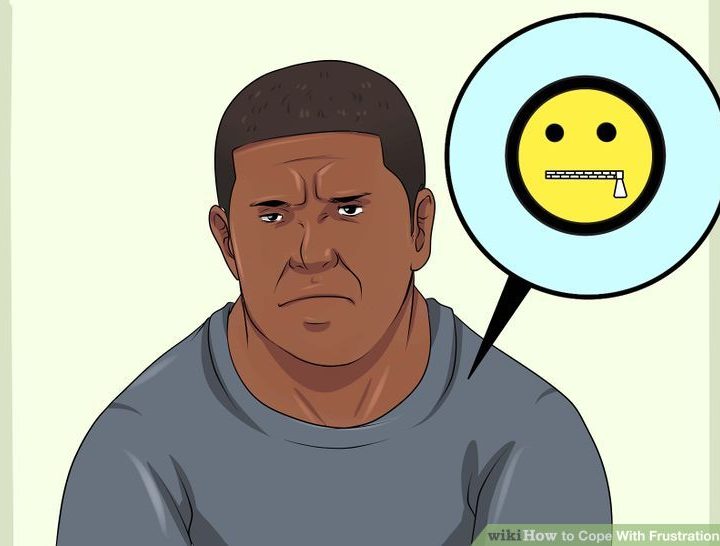 And, although mutual funds are no longer as effective as before (especially in the electric power industry), they are nevertheless worthy of attention. If you have sufficient savings, they recommend investing up to 30% of free resources in these bonds.
And, although mutual funds are no longer as effective as before (especially in the electric power industry), they are nevertheless worthy of attention. If you have sufficient savings, they recommend investing up to 30% of free resources in these bonds.
Read more
Personal FinanceComments: 0Getting a loan from a bank is a serious and responsible business. And if you have recently gone through this procedure, then you know firsthand about such a concept as “credit history”. After all, before giving the green light to signing a loan agreement, a bank employee will definitely check the fulfillment of your past loan obligations. How important is a credit history, and how to create it correctly, let's try to figure it out in today's review.
Read more
InvestingComments: 0 As you know, one of the best ways to save and increase your money is investing. In this case, the investor has the opportunity to receive income through interest, capital gains or dividends.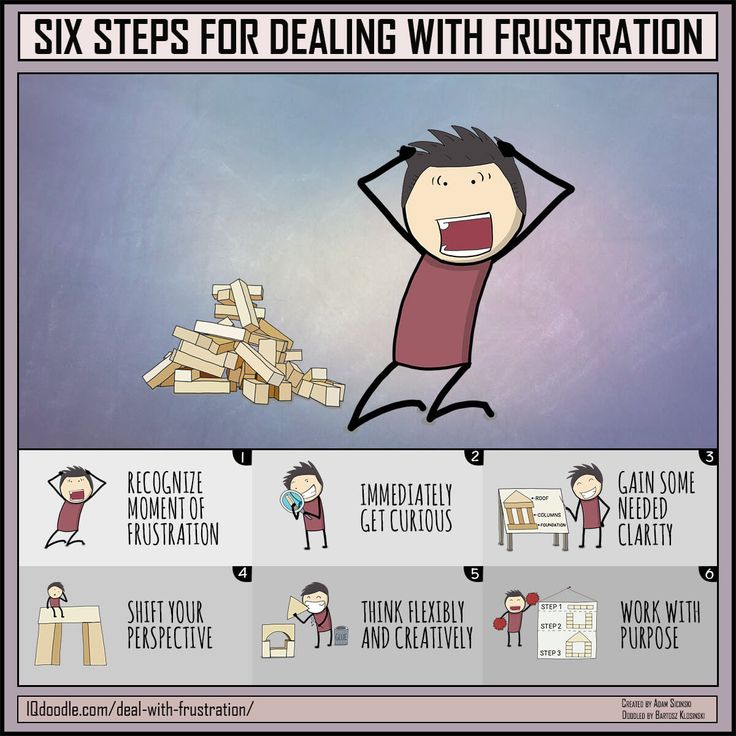 Success will depend on your level of financial literacy and a carefully thought out investment strategy.
Success will depend on your level of financial literacy and a carefully thought out investment strategy.
Read more
Personal FinanceComments: 0A relative, friend or work colleague may ask you to become a loan guarantor. Is it worth agreeing to? What rights and, more importantly, what obligations does a guarantor have?
Often, in order to obtain a bank loan, the borrower must present his guarantor to the bank. It is clear that for the bank this is a measure to reduce risks. Basically, the guarantor is asked to provide cash when issuing non-purpose loans. But especially cautious lenders introduce the institution of guarantee even when applying for a mortgage and a car loan, although for such products the bank already receives the purchased property or car as collateral.
Read more
InvestingComments: 0 Recently, many companies have rushed to the stock exchange, which held back their IPOs during the crisis years. How to invest in an IPO profitably, what criteria and methods for evaluating newcomers will protect investors from losses?
How to invest in an IPO profitably, what criteria and methods for evaluating newcomers will protect investors from losses?
In the days of the dot-com boom of the early 2000s, many companies, including VA Linux and Theglobe, caused quite a stir among investors on the first day of trading. But high expectations were replaced by long-term disappointment. Many investors are too frivolous about buying shares of Internet companies as part of an IPO.
Read more
Personal FinanceComments: 0 Approximately 80% of people live on the basis of loans, each time taking money from the bank and paying twice as much. Credit is so firmly squeezed into our lives that people do not even notice all the danger: borrowing money has become commonplace, constancy and an inalienable need. Even buying a washing machine or a good refrigerator has become impossible without a loan. People are literally mired in this, they cannot afford anything more: for example, traveling around the world.